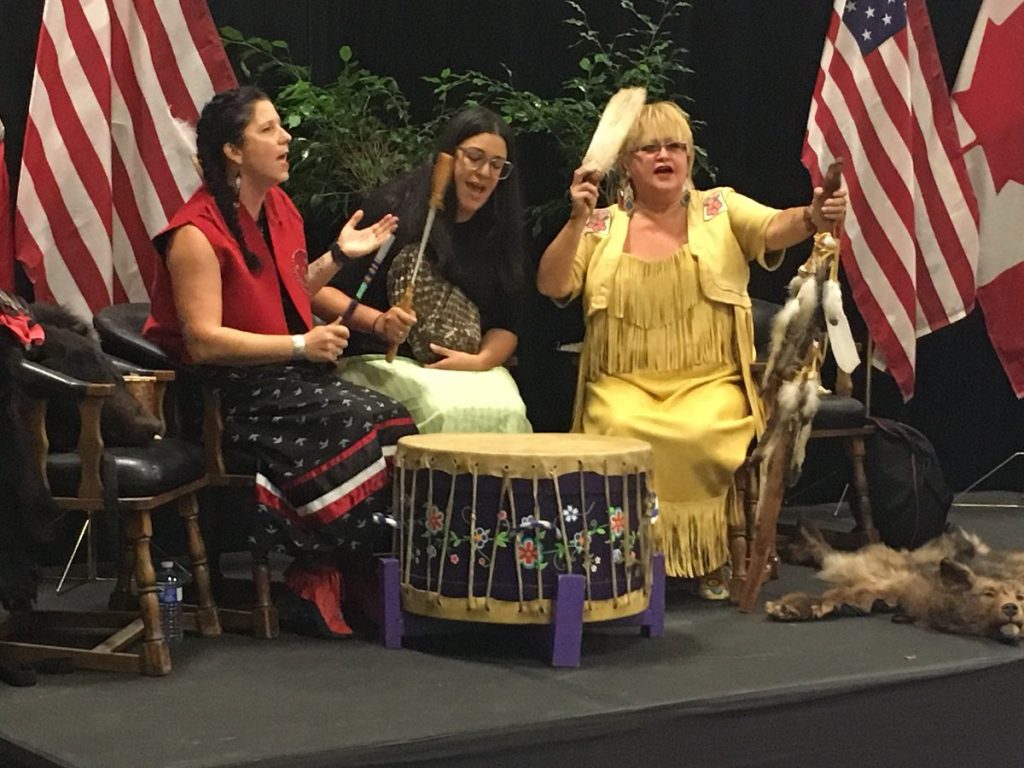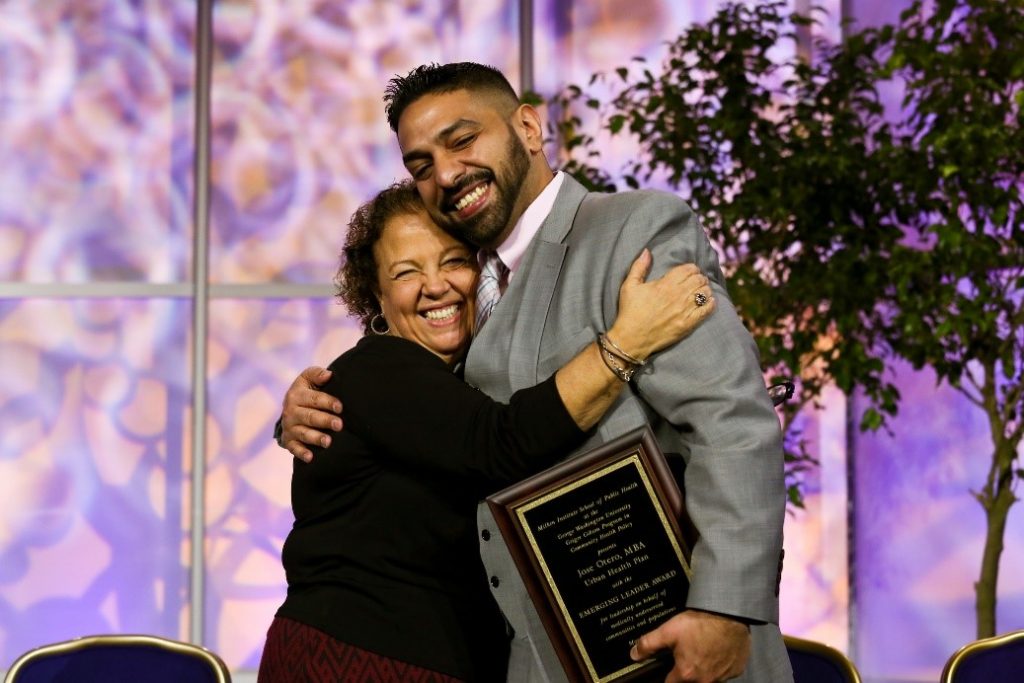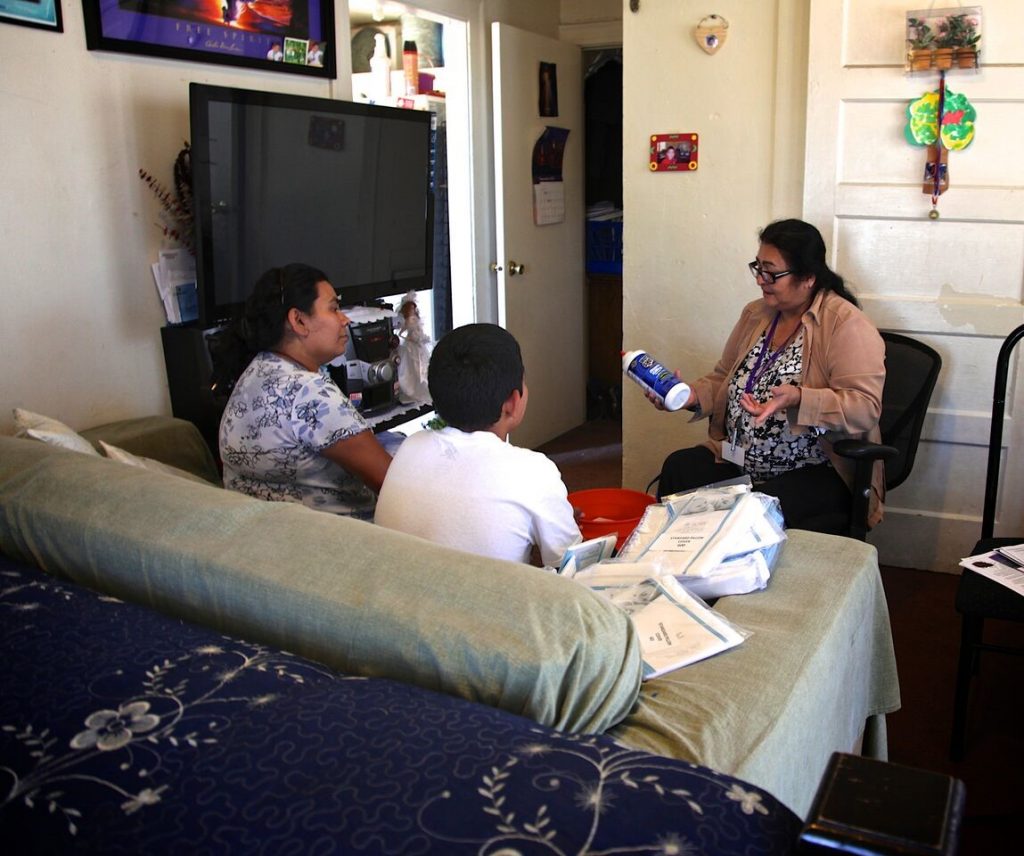In September, at the invitation of the Canadian Association of Community Health Centers (CACHC), Canadian and U.S health center leaders gathered in Victoria, British Columbia, for two days of intensive learning, dialogue and information sharing. Since 2010, the National Association of Community Health Centers (NACHC) has worked with the CACHC to facilitate knowledge exchange across our common borders. Building on that experience, the Northwest Regional Primary Care Association (NWRPCA), based in Seattle, and the British Columbia Association of Community Health Centres (BCACHC), based in Victoria, began discussions in 2014 concerning the shared regional ecology and health needs of the U.S. Northwest – Washington, Oregon, Idaho and Alaska – and British Columbia. They discovered that despite differences between the U.S and Canadian healthcare systems, health center organizations have much in common that transcends borders and reflects the shared social ecology, public health needs and demographics of their respective states and regions. Most importantly, they share values and a commitment to accessible, comprehensive and culturally responsive health care services.
Last month’s dynamic session, held in conjunction with CACHC annual meeting, built on these earlier bi-national initiatives. Representatives of community health centers and associations came together from 7 Canadian provinces and 11 U.S. states to exchange information, identify common challenges and discuss best practices. Data were presented from a recent survey of a subset of U.S. and Canadian CHCs to identify trends related to services and populations served by CHCs in both countries, with special attention to the impact of the opioid crisis. The survey was also intended to identify areas for potential future collaboration across borders. Discussion focused on emerging public health issues such as the opioid crisis, the housing crisis, disaster preparedness, the value of enabling services and programs in improving health outcomes and reducing healthcare and social costs, and promising approaches for collaboration toward greater impact.
“American and Canadian health centers have far more to learn from each other, particularly in the areas of clinical integration and addressing the social determinants of health, than commonly imagined. I’m excited by the potential this partnership has to improve community health models on both sides of the border,” said Bruce Gray, CEO, North West Regional Primary Care Association.
In both countries, the work of health centers is deeply embedded in the diverse communities they serve, and reflective of local needs, concerns and challenges. Yet the local work of health centers also exists in a broader national and global context. We’re excited to work with and support our colleagues across the U.S. and Canada to explore avenues for developing and strengthening global partnerships and expand the provision of quality health care for all.

Conference opening welcome acknowledging Indigenous lands and performance by First Nations ANSWER Women’s Drum Group (Image: CACHC)
______________________________________________________________________________________________________________________________________________________________________
Call for Nominations: 2019 Emerging Leader Awards
Do you have a remarkable young staff member at your PCA or health center? Each year, the Geiger Gibson Program in Community Health Policy honors colleagues age 35 or younger for their extraordinary accomplishments and dedication to advancing the mission of providing high-quality, culturally competent health services in their communities. Nominated by their community health centers and primary care associations, and selected by a committee drawn from senior health center leadership nationally, awardees will be honored during the final general session of the 2019 NACHC Policy & Issues Forum, in Washington D.C. this spring. “Our Emerging Leaders reflect the enormous range of talented young people who have made a career in the health center family and personify the enduring strength of health centers,” said Sara Rosenbaum, JD, the Harold and Jane Hirsh Professor of Health Law and Policy and founder of the Geiger Gibson Program at the Milken SPH. The Emerging Leader award is an opportunity for your staff who’ve made an extraordinary contribution as advocates, clinicians, health educators, and clinic administrators to be recognized on a national stage. Nominations may be submitted through Thanksgiving Day, Thursday November 22, 2018, at http://bit.ly/ggemergingleaders.

Paloma Izquierdo-Hernandez, President & CEO and 2018 Emerging Leader Award Recipient, Jose Otero, Assistant Director of HIT at Urban Health Plan, Inc. (NYC)
______________________________________________________________________________________________________________________________________________________________________
Public Charge
In a new article for The Commonwealth Fund, Sara Rosenbaum, J. D. discusses the Administration’s proposed “public charge” rule and outlines the implications of the rule for Medicaid and immigrants enrolled in the program. The proposed public charge rule will have a dramatic impact on coverage as well as on access to health care, and adversely impact the health and well-being of thousands of individuals and communities. It also threatens the financial stability of health centers and other providers as eligible immigrants would be discouraged from accessing Medicaid. Professor Rosenbaum’s important article is found here A New “Public Charge” Rule Affecting Immigrants has Major Implications for Medicaid.
Before the “public charge” rule can be finalized, the administration is required by law to review and respond to every unique public comment they receive about the proposed regulation. The 60-day comment period on the proposed rule started on October 10 and runs through December 10, 2018. The National Association of Community Health Centers (NACHC), Association of Asian Pacific Community Health Organizations (AAPCHO), California Primary Care Association (CPCA), the National Immigration Law Center (NILC), Protecting Immigrant Families (PIF) and others are developing and updating information resources, toolkits, tips to inform patients and the community, talking points and letter templates to oppose this threat to the vulnerable communities served at community health centers that would be disproportionately impacted by detrimental changes to public charge policy. Our voices are needed to urge the administration to reject the proposed rule, and advance instead policies that strengthen the ability for our communities to thrive.
Comments may be submitted here or directly to The U.S. Citizenship and Immigration Services (USCIS) Proposed Rule: Inadmissibility on Public Charge Grounds.
Read the Joint Statement of America’s Health Centers Opposing Public Charge Proposal.
______________________________________________________________________________________________________________________________________________________________________
RCHN CHF Goes to Vegas – Dr. Hartzband at the FOM-IT
Following National Health IT Week, NACHC’s Financial, Operations Management/Information Technology Conference & Expo (FOM-IT) took place in Las Vegas, NV, from October 16-17, and provided an opportunity for colleagues from across the country to take a deep dive into critical finance, operations, and Health Information Technology issues and explore strategies geared toward strengthening and transforming their organizations. Dr. David Hartzband, the Foundation’s Director of Technology Research presented a session on “The Changing Role of Data & Data Quality for Community Health Centers.”
Dr. Hartzband describes the role of data in a changing health care landscape. As health care moves toward value-based care and reimbursement, data and its application have grown in importance. The use of data has expanded beyond routine clinical, administrative and reporting tasks to include deeper analyses of diagnoses, treatments, and outcomes as well as of population-level measures. The amount of data in use has also increased substantially. Today’s environment necessitates new infrastructure, new applications, and most importantly a new appreciation of the role of data at all levels in the health center, and the ability to assess data quality. Building a positive data culture within the health center is essential for effective management, clinical care and operations.
To learn more about HIT and our technology-related work, and to view Dr. Hartzband’s presentations visit our ‘Technology in Focus’ page.
______________________________________________________________________________________________________________________________________________________________________
From the Field: St. John’s Well Child and Family Center Healthy Homes Healthy Kids Project (Los Angeles, CA)
In South Los Angeles, St. John’s Well Child and Family Center provides a comprehensive medical home for nearly 80,000 people, including thousands of children with asthma. The burden of asthma is exacerbated by the substandard housing that is the home to many of the area’s low-income and minority children. The aim of HHHK is to improve participants’ asthma control, increase caregiver knowledge of asthma and decrease emergency room visits and hospitalizations through the combination of medical care, in-home asthma education, assessment of asthma triggers in the home environment, remediation of home triggers, and comprehensive case management services. During the first home visit, and at intervals of three and six months, each participating family is assessed for their level of knowledge of asthma, the habitability of their home, recent usage of hospital or doctor’s appointments, and presence of asthma symptoms. The health center is also partnering with Strategic Actions for a Just Economy (SAJE), a community-based organization focused on tenant rights, healthy housing, and equitable development, to tackle housing conditions head on. The project is one of seven nationwide supported through our Population Health initiative.

A promotora from St John’s Well Child and Family Center conducts a home visit as part of the Healthy Homes, Healthy Kids program
______________________________________________________________________________________________________________________________________________________________________
Geiger Gibson/ RCHN CHF Research Collaborative Update
We are so fortunate to work closely with Sara Rosenbaum, J.D., Harold and Jane Hirsh Professor of Health Law and Policy and Founding Chair of the Health Policy department at Milken Institute School of Public Health, the academic home of the Geiger/ Gibson RCHN Community Health Foundation Research Collaborative. She’s recognized as one of the top 10 most-cited health law scholars and is clearly the nation’s foremost policy expert on community health centers, Medicaid, health care access for underserved communities, and civil rights and health care. “Most-Cited Health Law Scholars in Web of Science, 2013-2017” appears in the blog Bill of Health, a publication of the Petrie-Flom Center at Harvard Law School.



